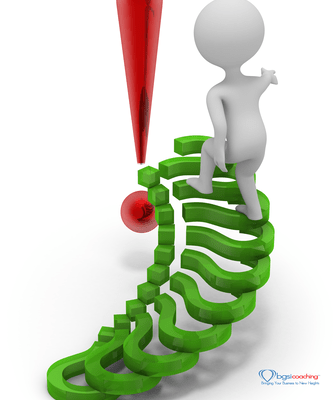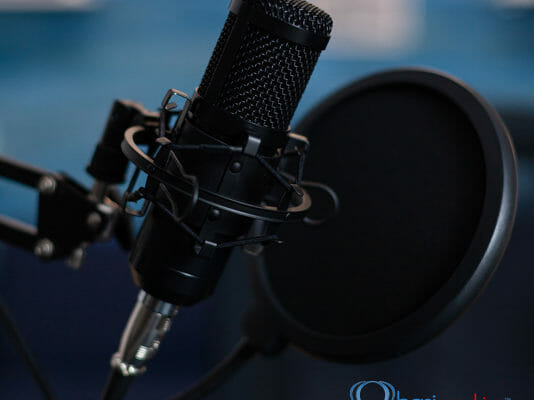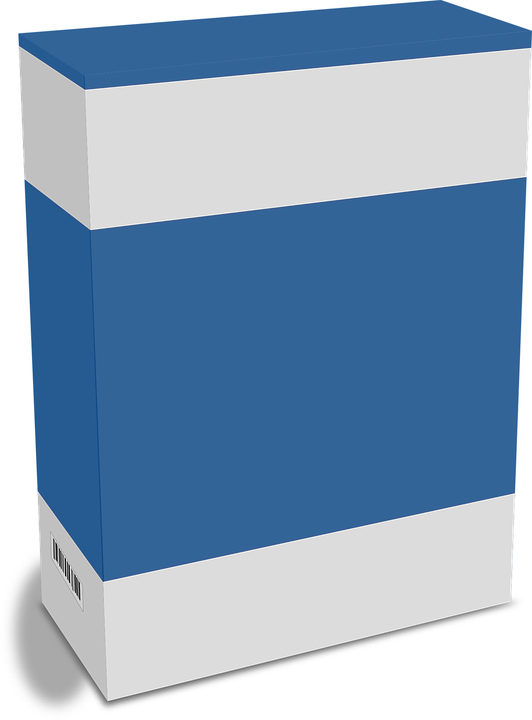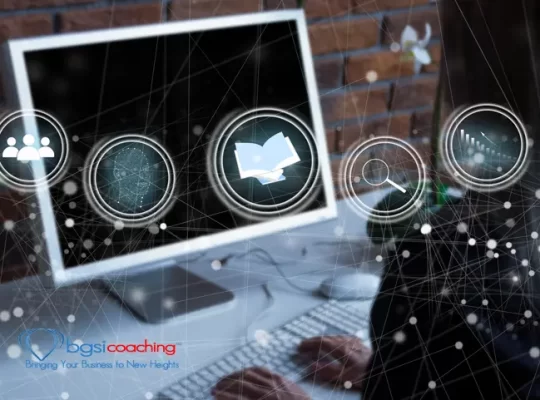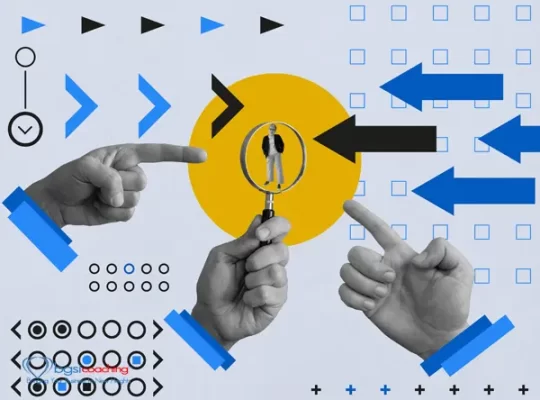Many people have different journeys when starting a business. Sometimes we’re lucky and the first business that we have, the business is a success. Sometimes though, these ventures fail but the lessons we learn can be quite beneficial. That is exactly the story of what happened with my guest, Bruce Thompson from Nerra.
As Bruce said, “…I did another startup before this start up. So I learned a lot from the first startup, which failed from a commercial point of view. But it gave me a lot of learning going into this one, and I had a huge amount of valuable experience from the first one…the problem was that I was essentially acting as a middleman, and I wasn’t really developing value for myself. So that was a fundamental learning that I got from that experience, which I definitely paid attention to with the next startup…
“I think a lot of this stuff kind of has to be experiential. You have to kind of learn from your mistakes. I think prior to the first one, I would have spent a fair bit of time thinking, what am I going to do? But until you’ve had the experience of a startup, I think it’s perhaps a confidence thing. You don’t really know what you might be able to achieve. So perhaps it limits your thinking in terms of what you’re prepared to have a go at. So going into the next startup, I didn’t really hesitate. I just chose something that I thought would be really interesting and just went for that. So I don’t know. I mean, maybe it’s a case of different strokes for different folks, and perhaps I’m sure it also depends on the sort of support that you have around you. If you’re in your first year at University and you meet a bunch of guys who have very like-minded thinking around some specific opportunity that you identify, then I think that’s a lot easier. You’ve got a lot more skills to leverage and probably a whole infrastructure of support from the University to support you.
“But if you’re going out on your own and you haven’t really had a lot of experience in the field that you’re embarking upon, which I’ve never had, I’m quite adventurous in that respect, then things are quite challenging. But having said that, I think it’s not necessarily a disadvantage to have no experience in the field that you’re looking to pursue, because I think you can have very blinked thinking if you’ve sort of had a career in a specific field. And that can be limiting.”
Listen in and see how Bruce used lessons that he learned from his first venture to help him through the journey as he started working with the eBike industry and how having the right mentors and supporters in his corner along with an incubator program were a great benefit to his journey.
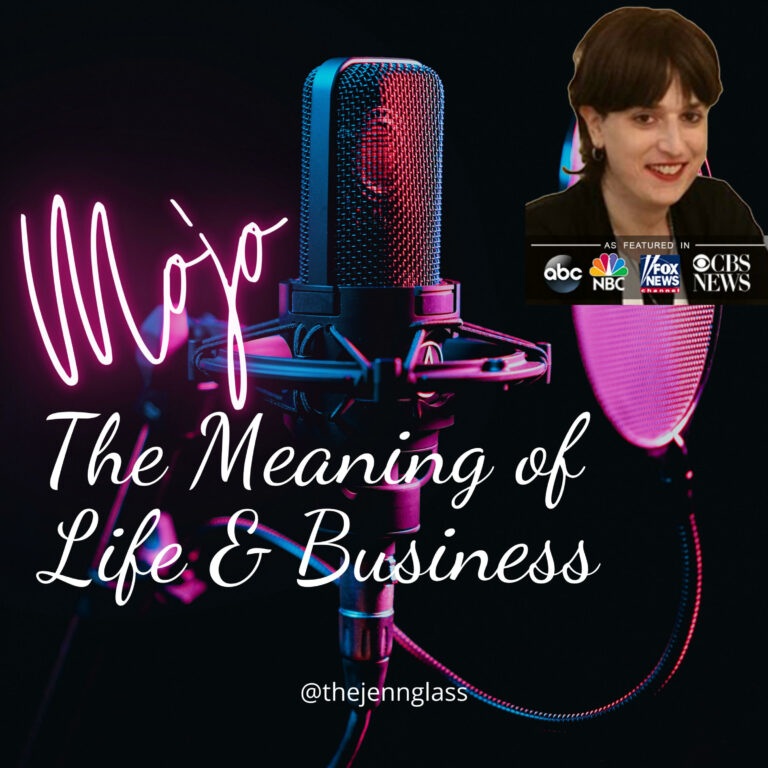
Life & business intersect in many places. After all, we cannot have a business without looking at the human component of business.
This podcast with Jennifer R Glass, CEO of Business Growth Strategies International & BGSICoaching.com is all about the meaning of life and business & the interesting ways they intersect. The show is for entrepreneurs and aspiring entrepreneurs on the search for what makes people successful and how to get there themselves.
Listen in as Jennifer & her guests dive deep into what makes people tick & how they make their businesses work for the betterment of others.
Many people have different journeys when starting a business. Sometimes we’re lucky and the first business that we have, the business is a success. Sometimes though, these ventures fail but the lessons we learn can be quite beneficial. That is exactly the story of what happened with my guest, Bruce Thompson from Nerra.
As Bruce said, “…I did another startup before this start up. So I learned a lot from the first startup, which failed from a commercial point of view. But it gave me a lot of learning going into this one, and I had a huge amount of valuable experience from the first one…the problem was that I was essentially acting as a middleman, and I wasn’t really developing value for myself. So that was a fundamental learning that I got from that experience, which I definitely paid attention to with the next startup…
“I think a lot of this stuff kind of has to be experiential. You have to kind of learn from your mistakes. I think prior to the first one, I would have spent a fair bit of time thinking, what am I going to do? But until you’ve had the experience of a startup, I think it’s perhaps a confidence thing. You don’t really know what you might be able to achieve. So perhaps it limits your thinking in terms of what you’re prepared to have a go at. So going into the next startup, I didn’t really hesitate. I just chose something that I thought would be really interesting and just went for that. So I don’t know. I mean, maybe it’s a case of different strokes for different folks, and perhaps I’m sure it also depends on the sort of support that you have around you. If you’re in your first year at University and you meet a bunch of guys who have very like-minded thinking around some specific opportunity that you identify, then I think that’s a lot easier. You’ve got a lot more skills to leverage and probably a whole infrastructure of support from the University to support you.
“But if you’re going out on your own and you haven’t really had a lot of experience in the field that you’re embarking upon, which I’ve never had, I’m quite adventurous in that respect, then things are quite challenging. But having said that, I think it’s not necessarily a disadvantage to have no experience in the field that you’re looking to pursue, because I think you can have very blinked thinking if you’ve sort of had a career in a specific field. And that can be limiting.”
Listen in and see how Bruce used lessons that he learned from his first venture to help him through the journey as he started working with the eBike industry and how having the right mentors and supporters in his corner along with an incubator program were a great benefit to his journey.
About Bruce: Bruce Thompson grew up on a farm in a sparsely populated and beautiful region of NZ… as he says, “it was an idyllic childhood.” He dropped out of University after four years of switching majors. He then began a career in Australia’s offshore oil & gas industry; that took him around the world. Bruce’s current goal is to see his start-up, Nerra, reach fruition and achieve commercial success. With Nerra, Bruce is aiming to re-think ebikes through a more sustainable and holistic approach. Bruce once received a Police Certificate Of Appreciation for tackling an offender who was smashing shop windows. As a start-up founder, Bruce doesn’t have much free time, but he enjoys music, outdoors, reading, technology, rock climbing, mountain biking, and meditation.
Connect with Bruce on LinkedIn or visit him online at nerra.net.
#startup #ebike #sustainability #environment #commuting #safety #innovation #incubator #mentorship #coaching
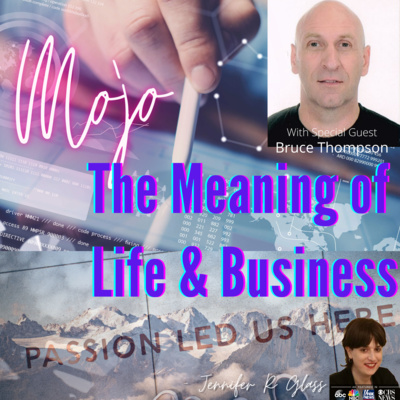
Transcript (auto-generated; may contain errors)
Speaker 1 (00:01)
Hello and welcome to another episode of “MOJO: The Meaning of Life & Business.”
(00:05)
On today’s program, we’re going to be talking about a startup journey.
(00:10)
For those of you that have gone through your own startup, you know that there’s so many different twists and turns. Am I doing too much? Am I doing too little? Do I know what I’m actually doing?
(00:22)
A lot of things come into play as we’re looking at what it is that we’re trying to do as it relates to a startup journey.
(00:32)
And so I have a really amazing guest today. His name is Bruce Thompson. And before I bring Bruce in, though, let me tell you a little bit about Bruce.
(00:41)
So Bruce grew up on a farm in a sparsely populated beautiful region in New Zealand. As he says, it was an idyllic childhood. He dropped out of University after four years of switching majors. He then began a career in Australia’s offshore oil and gas industry that took him around the world. Bruce’s current goal is to see a startup Nerra, reach fruition and achieve commercial success. With Nerra, Bruce is aiming to rethink ebikes through a more sustainable and holistic approach.
Speaker 1 (01:12)
Bruce, thank you so much for being on the program today.
Speaker 2 (01:15)
Hi, Jennifer. Thank you very much for having me.
Speaker 1 (01:18)
Absolutely. So, Bruce, let me ask you, you’ve definitely been through quite a bit and switching majors over four years in school. I mean, that must have driven your parents crazy most of all, probably yourself as well, a little bit. Not exactly sure what it was you wanted to do. And I get that as a kid, we’re all wondering what is it that we really want to do? But where were you? What did you originally want to do before you got to where you are now?
Speaker 2 (01:53)
Well, that was the thing, really. I didn’t know exactly what I wanted to do. I grew up on a farm, as you mentioned, and I didn’t want to be a farmer. So when you’ve just lived on a farm all your life, I guess you don’t get exposed to perhaps as much as you might if you’re in a city. And then I went to school and I was in the top class, and we kind of just got channeled into pretty narrow fields, really. So when I got to University, it was like, oh, wow, there’s all these other options. I just kind of experimented at trying to find something that enthused me, I guess. And it took a long time. I obviously hadn’t found it by the end of my academic career, I suppose, or academic attempts. And then I went off into the world and embarked on a career within the oil and gas industry and took some twists and turns in that as well. So all the while I was kind of searching for something that felt like me, felt like I was in my flow, perhaps. So it wasn’t for many years of searching, I suppose, and traveling around the world and so forth, that I really found my thing, which was, I think, entrepreneurialism.
Speaker 1 (03:28)
Absolutely. And I think that a lot of people listening would be feeling the same way in terms of I wasn’t really liking the corporate “9-5 gig.” And so they felt the need to go out on their own and do something of their own unless they started doing something of their own, which very few people have successfully done. But those that do, they probably are some of the biggest names, like Mark Zuckerberg, Bill Gates, Michael Dell. Some of these people are – just they did it out of the get-go. So it was great in terms of doing that. But a lot of us definitely had the same experience in terms of we bounced around. We were trying to find our thing. For me personally, I was a poli-sci major in school, I was pre-law, ended up in marketing and sales. And here I am. So there’s so many differences that come in in terms of what it is that we’re doing, where we’re going and all of that. So let’s talk about your startup journey, though. So you realized after the oil and gas industry and from your schooling, after you matriculated and everything from your University days.
Speaker 1 (04:57)
Let’s talk about your startup journey. What were some of the things that you knew going in before you started, in terms of the journey? And I don’t want to tell people yet what it was or anything. I just want to get an idea. What did you think you knew at that time?
Speaker 2 (05:19)
Right. Well, I probably need to preface this with the fact that I did another startup before this start up. So I learned a lot from the first startup, which failed from a commercial point of view. But it gave me a lot of learning going into this one, and I had a huge amount of valuable experience from the first one.
Speaker 1 (05:45)
So let’s talk, though, about the first one. Right, because people that are looking at going into business for themselves, they’re going to be looking at it as their own first start up, and they may have multiple ones as they continue. But let’s talk about what did you know going in on the first one or what did you think?
Speaker 2 (06:09)
To be honest, it was kind of pretty vague. The premise for that startup was just really based around the experience that I’d gained from living and working in Asia, and I thought I could leverage that to develop a business, helping New Zealand businesses to find investors and trading partners overseas, primarily in Asia. It was a bit vague focus, but for me it was incredibly interesting because I got to work with a lot of really interesting New Zealand companies that was really diverse work. Like I did anything from finding offtake companies that were interested in taking the signing up to an off take agreement for a thermal coal resource. I worked with Craft Brewery in New Zealand, and I work with some technology companies in New Zealand doing all sorts of things and developing a huge number of contacts throughout the rest of the world connecting these companies with various opportunities. So it was really interesting. But the problem was that I was essentially acting as a middleman, and I wasn’t really developing value for myself. So that was a fundamental learning that I got from that experience, which I definitely paid attention to with the next startup.
Speaker 1 (07:48)
So other than the acting as a middleman, was there anything else that you wish you knew going in?
Speaker 2 (08:02)
I don’t think so. I think a lot of this stuff kind of has to be experiential. You have to kind of learn from your mistakes. I think prior to the first one, I would have spent a fair bit of time thinking, what am I going to do? But until you’ve had the experience of a startup, I think it’s perhaps a confidence thing. You don’t really know what you might be able to achieve. So perhaps it limits your thinking in terms of what you’re prepared to have a go at. So going into the next startup, I didn’t really hesitate. I just chose something that I thought would be really interesting and just went for that. So I don’t know. I mean, maybe it’s a case of different strokes for different folks, and perhaps I’m sure it also depends on the sort of support that you have around you. If you’re in your first year at University and you meet a bunch of guys who have very like-minded thinking around some specific opportunity that you identify, then I think that’s a lot easier. You’ve got a lot more skills to leverage and probably a whole infrastructure of support from the University to support you.
Speaker 2 (09:23)
But if you’re going out on your own and you haven’t really had a lot of experience in the field that you’re embarking upon, which I’ve never had, I’m quite adventurous in that respect, then things are quite challenging. But having said that, I think it’s not necessarily a disadvantage to have no experience in the field that you’re looking to pursue, because I think you can have very blinked thinking if you’ve sort of had a career in a specific field. And that can be limiting.
Speaker 1 (10:04)
Absolutely. When you’re too set in your ways, when you have a tunnel vision, it can definitely become a detraction to your value as opposed to a benefit to what you’re trying to do. So let me ask you, Bruce, in terms of mentorship, how did knowing people that may have acted formally or informally as mentors during your startup process, did that have any kind of benefit for you?
Speaker 2 (10:45)
Well, during the first startup, I was part of an incubator program, and I’m sure that was beneficial, and they sort of told me that I really needed to look at my business model and so forth. And I was pretty determined to pursue the opportunity that I saw, and perhaps that was to my folly. I’m not really sure about that because I think I was very close to success a number of times with that particular startup. But for whatever reason, I just wasn’t able to convert. But with this startup that I’m working on at the moment, I’ve really had very little in the way of mentors. I mean, I’ve had a lot of collaborators, but in terms of a formal sort of mentor giving me ongoing advice, I’ve really had no one. So it’s just sort of been learned by doing sort of thing.
Speaker 1 (11:59)
And so one thing that I will share with our listeners, though, is if you’re thinking about starting a business or you are in business and you need that mentorship, certainly seek it out because you heard from Bruce in the first startup with the incubation time. That certainly had some benefit in terms of what Bruce was thinking. And knowing that there’s people that are there to support you is certainly something that you should be paying attention to and be seeking them out. I know that for me, working with my clients, I’m helping them all the time, get through certain points and sometimes even skip to, three, five years down the road instead of making the same mistakes that a lot of startups do do. But putting that aside for the moment, Bruce, let’s talk now about Nerra and the ebike that you’re working on. So first of all, this sounds really like an incredible opportunity. Can you tell us more about what Nerra is, how it works and not giving away trade secrets, of course. But how do you do what you do and what’s making you different from any kind of possible idea that’s out there otherwise?
Speaker 2 (13:24)
Sure. Well, I think I should give a little bit of background because as I’ve mentioned, I used to work in the oil and gas industry, and I was made redundant following their global oil price collapse of 2014. And I was working in Singapore at the time, and I very quickly made a decision to move to Vietnam to cut my cost base. While I carried out my job search and the job search, it was looking pretty bleak, basically because the market was very busy collapsing. So fairly soon thereafter determined that I needed to do something else. So I looked around for startup opportunities. And living in Vietnam, the most obvious problem that I could see that needed to be sold was the problem of the plethora of petrol-powered scooters, because the pollution is really quite horrendous and not only the air pollution but the noise pollution. So as a consequence of that, I spoke to some Vietnamese to see what the problems were that they perceived with ebikes such that there were so few of them. And the problems that people perceived were problems that I thought I could solve. So that was really the catalyst for my Ebike project.
Speaker 2 (14:41)
And essentially, in the beginning, I was looking to develop something that could be an alternative to the petrol-powered Scooters of Asia. That was something that the concept was to make, something that was reasonably robust and so forth, but reasonably cheap to manufacture, because you’re sort of competing at the bottom end of the market. But after a bit of time, I realized that competing at the bottom end of the market was going to be a pretty tough battle. Honda has 60% share of the petrol-powered Scooter market in Vietnam, so if I was to go up against Honda, I would be sure to lose. So at some point, I realized that I really needed to aim at the upper end of the market, much like a Tesla-type model. And so we kind of flipped it on its head and then looked at ways we thought we could significantly differentiate ourselves from what currently existed on the market. And for me, I’m really interested in technology and innovation. And so, from that point, in fact, from the beginning, really, I was just really interested in how I could sort of look at things holistically in order to make them better.
Speaker 2 (16:00)
And at that time, which was when I started, was late 2015, Ebikes were pretty clunky sort of things. I mean, they were not well integrated like they are at the moment. I mean, battery packs were sort of bolted on and so forth. So everything that I was looking to do was about making things lighter, more efficient and integrated, I guess. So it’s been really interesting to see how the industries progressed since that point, and it’s been a pretty rapid progression. Obviously, at this stage, battery packs are very well integrated into frames and so forth. But with that in mind, I think Ebikes are not entirely well integrated even at this point, because what’s happened is you’ve got the big companies like VOSH and Yamaha and Shimano, et cetera, are developing these drive systems, and then you get the bike developers that, generally speaking, only really develop a frame, and then they pick and choose components and basically cobbled together an Ebike. So that’s where I see that there’s an opportunity, because the developers of these Ebikes are not really taking they don’t have the ability to innovate because their innovation is only limited to selection of components Besides the frame which they develop.
Speaker 2 (17:36)
One bite frame is not particularly different to another, generally speaking.
Speaker 1 (17:42)
So as we look at the Ebike market, there’s been a lot of regulation that’s been coming out about the Ebikes. In New York City as an example, They used to have, I believe it was Uber maybe, or Lyft, I forgot exactly which one of them had their own Ebike program that was in New York City, and they eventually got rid of it. And there’s a lot of opportunities that are out there in terms of how do you make things actually happen? But safety concerns are always paramount whenever somebody’s on a bike. Right. I mean, whether it’s a traditional bike, it’s a motorcycle, it’s an ebike, it’s a scooter, a Vespa, whatever it is that somebody’s got, there’s a lot of issues that are naturally inherent with riding just a two-wheel vehicle. So as you’re looking at where Nerra is fitting into the overall market, though, what is the problem that you’re solving in terms of where you’re coming from? Just to help our listeners kind of get an idea into your thinking about your mousetrap and how it’s different than what may be out there in general.
Speaker 2 (19:09)
Okay, well, you mentioned safety, and I think that is a very key issue for a lot of ebike riders or potential ebike riders, particularly from an urban commuter perspective. And that’s definitely one area that we’re looking to address. And the way we’re looking to address that is by developing an automated speech recognition system, which will enable a voice user interface, because obviously an ebike rider is a little bit limited in terms of how they can interact with the bike. It’s not particularly granular. There’s not a panel of controls that you can easily reach and manipulate when you’re riding a bike. So our voice user interface aims to change that and thereby enable a lot more functionality. And some of that functionality will be to enable safety features such as maybe light up blind-spot warning detection, which could be audible directly in the rider’s ear and or things like bike called in-vehicle communications, which could give a rider a warning if a car is getting too close, for instance. So these are some safety features that our system would kind of facilitate if you like. And the other things that it would act as an enabler for would be things like navigation.
Speaker 2 (20:53)
If you’ve ever tried to navigate whilst on a bike, I think you would be much like me and find it a very frustrating experience, because if you’re trying to use your phone while riding a bike, that’s almost impossible. So because of sun glare or if you’re trying to hold it in your hand, that doesn’t really work. So generally speaking, I’ve found that if I’m trying to navigate on my bike, I really need to stop and check my map and then continue. So with a voice user interface, you could have turn by turn navigation directions directly in your ear. And then there’s other things like you could have voice to text communications. If you’re running late for a meeting, maybe we could have AI based coaching if you’re looking to train on your bike. So I think it’s quite an exciting kind of. Well, yeah, just development for a bike. It just creates more utility, I think.
Speaker 1 (21:58)
And so when you’re looking at the Mousetrap that you built now, there’s a lot more benefit to what Nerra is going to be in the market with as opposed to what’s out there then, and that then addresses a lot of that regulation and things along those lines in terms of safety, in terms of making sure that the rider, drivers and pedestrians ultimately can be safer as well, correct?
Speaker 2 (22:28)
Yeah, I think so. Lidar, for instance, already exists. And I think these systems there’s a consortium of companies that are working on this bicycle to vehicle communication standard. So there’s a lot of very big companies like GM and Ford and Subaru and so forth that are contributing to the standard that’s being driven by a startup in the States, which I think is really interesting because I’ve talked to many people that would be interested in taking commuting on a bicycle to work, but they’re a bit fearful of being immersed in traffic. So anything that we can help to mitigate the perceived risks would be beneficial in increasing the uptake of urban commuting.
Speaker 1 (23:28)
And so when we’re looking at biking to work as opposed to driving to work, there’s obviously some sort of sustainability and environmental concerns that are built in, which is another area that you are deeply interested in, correct?
Speaker 2 (23:44)
Yeah, for sure. I’ve read an article recently that suggested that bicycles are far more important and more significant to net-zero future than cars are. The more uptake we have of bicycle commuters, the better.
Speaker 1 (24:05)
Absolutely. So, Bruce, as you look at Nerra’s journey over the next 18 to 24 months, where do you see the company going in terms of where you are now to where you’re hoping the business is going to be in 18-24 months from now?
Speaker 2 (24:29)
Well, I think things are starting to look quite exciting. I’m collaborating I’ve been in discussions with an accelerator in Taiwan, which Taiwan being the center of the bicycle universe, really, and they’ve connected me or they’re in the process of connecting me with an industrial collaborator in Taiwan. And I think if things kind of pan out, then they could help to speed up our development because there are a number of things that we’re looking to develop. I’ve mentioned so far automated speech recognition or voice user interface, but we’re also developing a sustainable composite frame and front fork and a drive system. And our drive system is quite novel, too, and that we’re looking to develop a digital drive train. So that will consist of a pedal generator where the bottom bracket of the bike goes, and then a hub motor in the rear wheel. So this will be very different from a conventional Ebike in that there’s no physical transmission. So basically the generator will feed power to the hub motor and there’ll be a battery pack augmenting that power, but it makes for a very clean and maintenance free system. So we’re quite excited about that.
Speaker 1 (26:06)
That’s really interesting and good luck with that incubator program in Taiwan. So let me ask you, as you in your own entrepreneurial journey, where do you see yourself in three to five years from now.
Speaker 2 (26:25)
Well, it’s very difficult to say, but I would certainly hope that we’re commercializing in different parts of the world. I think obviously the US, being such a vast market, would obviously be a target we’d be aiming to break into very soon, along with the EU. I think those are probably the two primary markets. Urban commuting in Europe is a very big thing, so that makes sense. I think, as I mentioned, if things pan out with Industrial Collaborator, then I think things could ramp up very fast. The exciting thing about the sustainable composite frame and front fork that we’re looking to develop is that we’re looking to use a technology that will enable basically serious production of our frame and front fork in a very efficient and cost-effective process. So that would mean that we potentially could scale up very quickly because that process is either automated or semi-automated and certainly much more efficient than conventional handling out, which is usually used for composite bike frames. So I think the future could be very exciting. But when you’re involved in R&D, things tend to change quite quickly. And when you’re a tiny startup, you really need a lot of support.
Speaker 2 (28:10)
So without a major financial backer, then scaling up becomes very difficult.
Speaker 1 (28:18)
And I have a feeling, based on what you’re just saying, that there may be a licensing deal in the future with some of the other manufacturers of systems that may be looking at your individual way of doing things with the composite frame and things along those lines that you were mentioning. That could be something that can be down the road, a possibility. Every entrepreneurs dream to either be bought out for a big Bucks or to license for a big Bucks
Speaker 2 (28:52)
yeah, well, absolutely.
Speaker 2 (28:57)
I try not to have preconceived ideas about how things are going to kind of shake out, because when you need external help, I think it’s best not to have to fix an idea about how that help might manifest itself. But speaking of licensing deals, we’ve developed what’s called a continuously variable transmission which we had planned to use for the bike. But when we came to try to integrate that into the frame, the integration was a bit of a challenge. And when you look at integration engineering, when we looked at that integration engineering, it became apparent to me that we could spend a lot of money very quickly and perhaps not achieve our goal. So I made a decision at that point to look to try to find licenses for the CVT technology, which has a lot of potential in other applications. So at the present time, I’m in discussions with a number of multi-billion dollar multinational companies about licensing this technology. And the primary application for this at this point in time is actually for petrol-powered scooters, which is quite interesting given that that was really the catalyst for this whole endeavor.
Speaker 1 (30:21)
Right. So interesting that it comes full circle back to the fuel-powered scooters. So that’s really interesting.
Speaker 2 (30:32)
Yeah, it’s exciting. Actually. I would be really thrilled if this does work out because our CVT can potentially improve fuel efficiency by at least 25% compared to the CVT that’s currently used in these scooters.
Speaker 1 (30:52)
And that would be great because if somebody has to keep putting fuel into their scooter, 25% savings, first of all, helps them save a lot and invest more in their communities instead of spending it just on fuel for their scooters. So that would be incredible. So, Bruce, as we look at wrapping up our conversation today, let me ask you, how can people find out more about you and more about narrow and what you guys are doing over there?
Speaker 2 (31:27)
Well, we have a website. It’s Nerra.net. So there’s a little bit of information there, but Nerra is essentially operating in somewhat of a stealth mode. So primarily what we’ve got there are some market validation surveys, but my details are there. So if anybody is interested, then feel free to reach out to me. My email address is just [email protected]. So, yeah, if anybody’s interested in knowing more, I’d be more than happy to answer any questions.
Speaker 1 (32:07)
Thank you so much, Bruce. And it was great having this conversation with you today.
Speaker 2 (32:13)
Yeah, likewise. Thank you, Jennifer. It’s been a pleasure.
Speaker 1 (32:17)
Absolutely. Thank you. And so, as you think about your own startup journey, there’s a lot of ways that you can get to where you ultimately want to get to, whether it’s going to be looking at something right now and understanding it’s hopefully going to be a smashing success.
(32:35)
But knowing that with the right people, the right team, sometimes it will get there. And sometimes it’s also going to be as Kevin O’Leary, one of the Sharks on “Shark Tank” here in the United States, tends to say something you have to take out back behind the farm and shoot it, simply because the more that you continue to invest in, a losing proposition may not ultimately be the best choice, as Bruce was mentioning with his CVT transmission on the bikes and integrating. So when you pivot and you look at how can you get that CVT transmission still in the market and having the licensing opportunities, you’re not throwing everything away that you invested so much time, effort and money into, but you’re still giving your idea, your baby, an opportunity to live. So look at having the right people around you that can give you that counsel, that can give you that help as you’re looking for it, that is going to be putting you in a position to ultimately get to the place that you want to be at.
Speaker 1 (33:45)
And so I want to thank you again, Bruce, for being on the program. And until next time, this has been another episode of “MOJO: The Meaning of Life & Business.” And here’s to your success.
About Bruce: Bruce Thompson grew up on a farm in a sparsely populated and beautiful region of NZ… as he says, “it was an idyllic childhood.” He dropped out of University after four years of switching majors. He then began a career in Australia’s offshore oil & gas industry; that took him around the world. Bruce’s current goal is to see his start-up, Nerra, reach fruition and achieve commercial success. With Nerra, Bruce is aiming to re-think ebikes through a more sustainable and holistic approach. Bruce once received a Police Certificate Of Appreciation for tackling an offender who was smashing shop windows. As a start-up founder, Bruce doesn’t have much free time, but he enjoys music, outdoors, reading, technology, rock climbing, mountain biking, and meditation.
Connect with Bruce on LinkedIn or visit him online at nerra.net.
#startup #ebike #sustainability #environment #commuting #safety #innovation #incubator #mentorship #coaching


